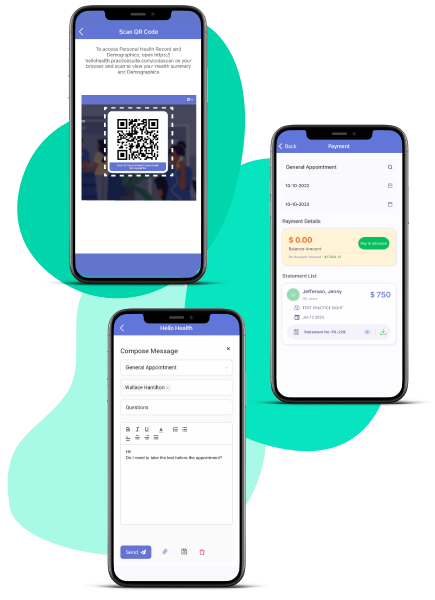Why Should Doctors Focus on Patient Engagement?

Why Should Doctors Focus on Patient Engagement?
Patient engagement is essential for improving outcomes and the overall patient experience, and it can even contribute to more efficient use of healthcare resources. It is an approach that goes beyond conventional medical care delivery and puts patients at the center of care.
Here are some key reasons why doctors should prioritize patient engagement.
Better Health Outcomes
The direct link to health outcomes is among the strongest incentives for doctors to concentrate on patient engagement. Patients involved in their care are more likely to adhere to treatment plans, manage chronic conditions effectively, and adopt healthier lifestyles.
This engagement can result in lower hospital readmissions and lower rates of complications. It’s been established that patients who are more involved in healthcare decisions have lower odds of adverse outcomes and better odds of achieving overall health objectives.
Increased Patient Satisfaction
Patient engagement increases patient satisfaction, which is increasingly important in a healthcare environment that values patient-centered care. Patients who report positive experiences feel involved, understood, and heard when making care choices.
This satisfaction enhances the patient’s connection with their doctor, improves patient loyalty, and helps them trust the healthcare system. Happy patients are usually more apt to refer their providers to others, enhancing the provider’s image and subsequently boosting their patient base.
Patient satisfaction is associated with an increased market share, reduced malpractice claims, and improved reimbursement rates.
Effective Communication and Trust
Engaged patients tend to communicate more openly and effectively with their doctors. This enhanced communication provides better identification of patient needs, preferences, and concerns, leading to even more personalized care.
Patients who were hospitalized are less likely to be readmitted if they are contacted as part of an early follow-up program post-discharge; this is where secure two-way communicationchannels can be of huge benefit to both the patient and their provider.
Trust develops when patients believe their suggestions and concerns are heard and respected, strengthening the doctor-patient relationship. Trust is fundamental in healthcare as it encourages people to be more upfront about symptoms they are experiencing and more likely to follow medical advice.
Empowerment and Shared Decision-Making
Patient Engagement is an essential element of shared decision-making, whereby doctors and patients work together to make healthcare choices consistent with the individual’s values, tastes, and lifestyle.
This empowers patients to be partners in their care and make educated decisions consistent with their medical objectives. Empowered patients are more likely to remain motivated and stick to treatment plans, resulting in better adherence and results.
Enhanced Efficiency and Cost-Effectiveness
Engaging patients can also lead to better healthcare delivery. Patient education regarding treatments and conditions may result in more educated choices and a reduced need for tests, hospitalizations, or procedures.
This not only lowers healthcare costs but also optimizes resource use. Also, engaged patients are more likely to access preventive services, lowering the risk of expensive interventions for severe health complications.
Adaptation to Technological Developments
Patient engagement is becoming increasingly crucial as digital tools and technologies transform healthcare. Telemedicine, Electronic Health Records, and mobile health apps like HelloHealth all enhance patient engagement by permitting patients to obtain their health information more quickly, enabling interaction with doctors and precise health monitoring.
Doctors concerned with patient engagement are better motivated to use these technologies for enhanced care delivery and patient outcomes.
The Lasting Impact of Patient Engagement
Patient engagement is vital for improved health outcomes and a more efficient healthcare system. By adopting digital technologies to encourage active engagement, providers can boost patient satisfaction, reduce expenses, and enhance care.
The evidence is convincing: everybody benefits when patients are involved in their care; the lasting impact of patient engagement is a healthier, more informed, and more empowered patient population, driving the future of patient-centered care.
HelloHealth can help your practice achieve better patient engagement by providing a fully digital experience to your patients.
Sources:

